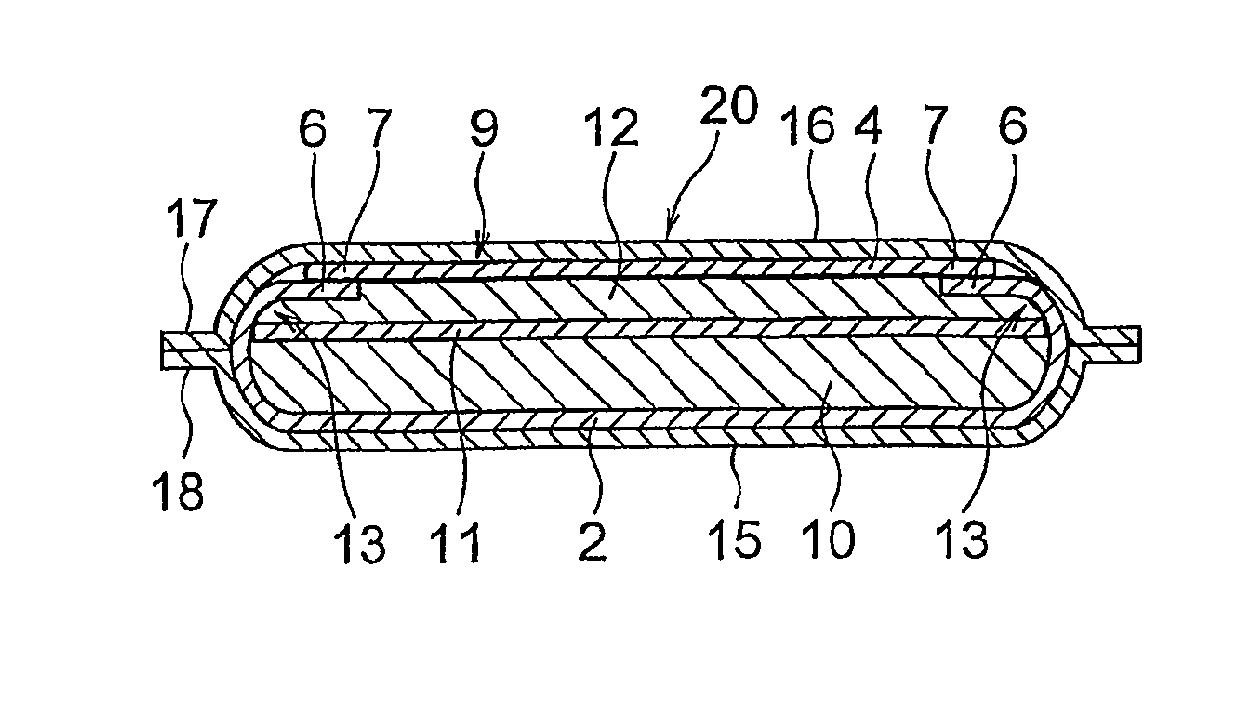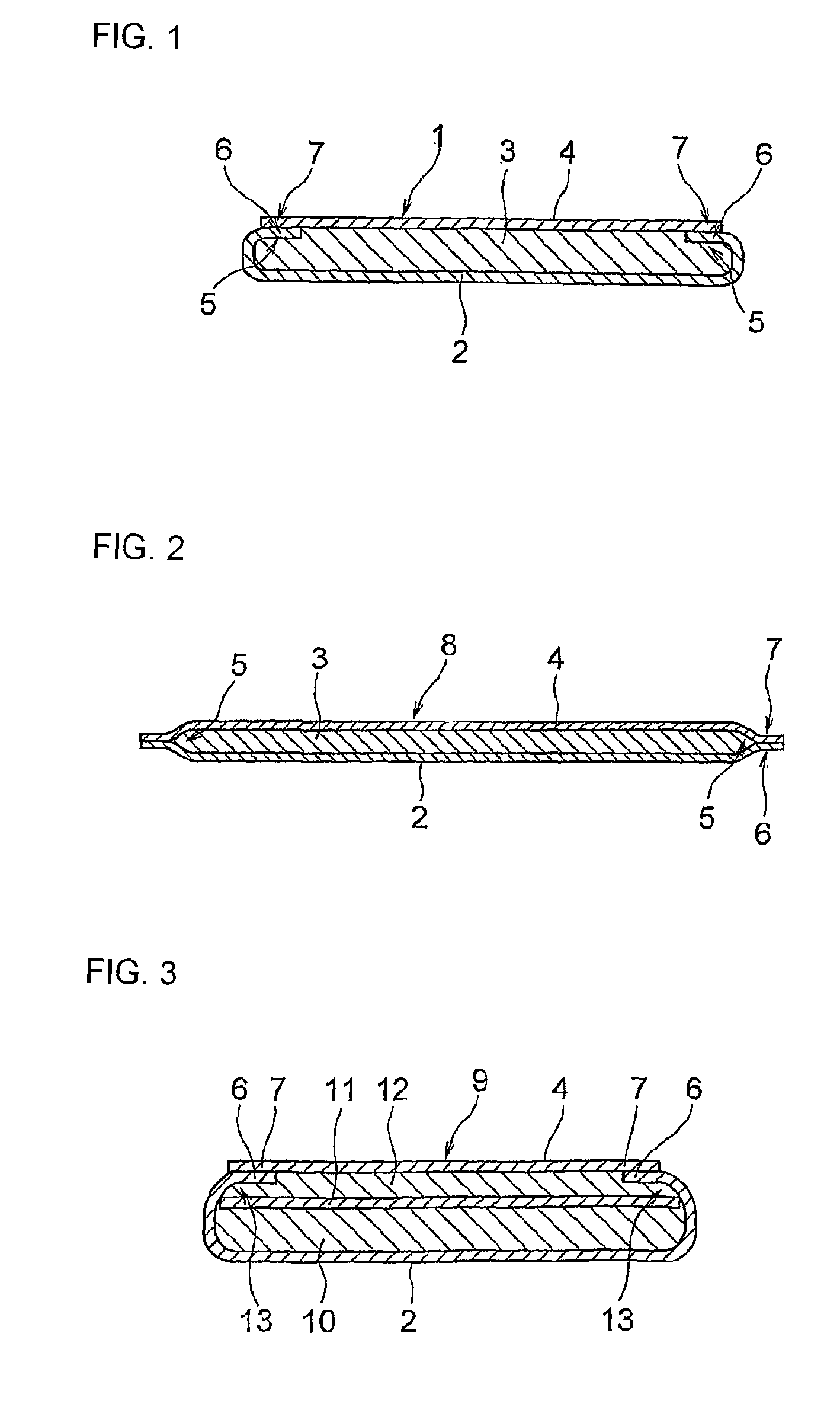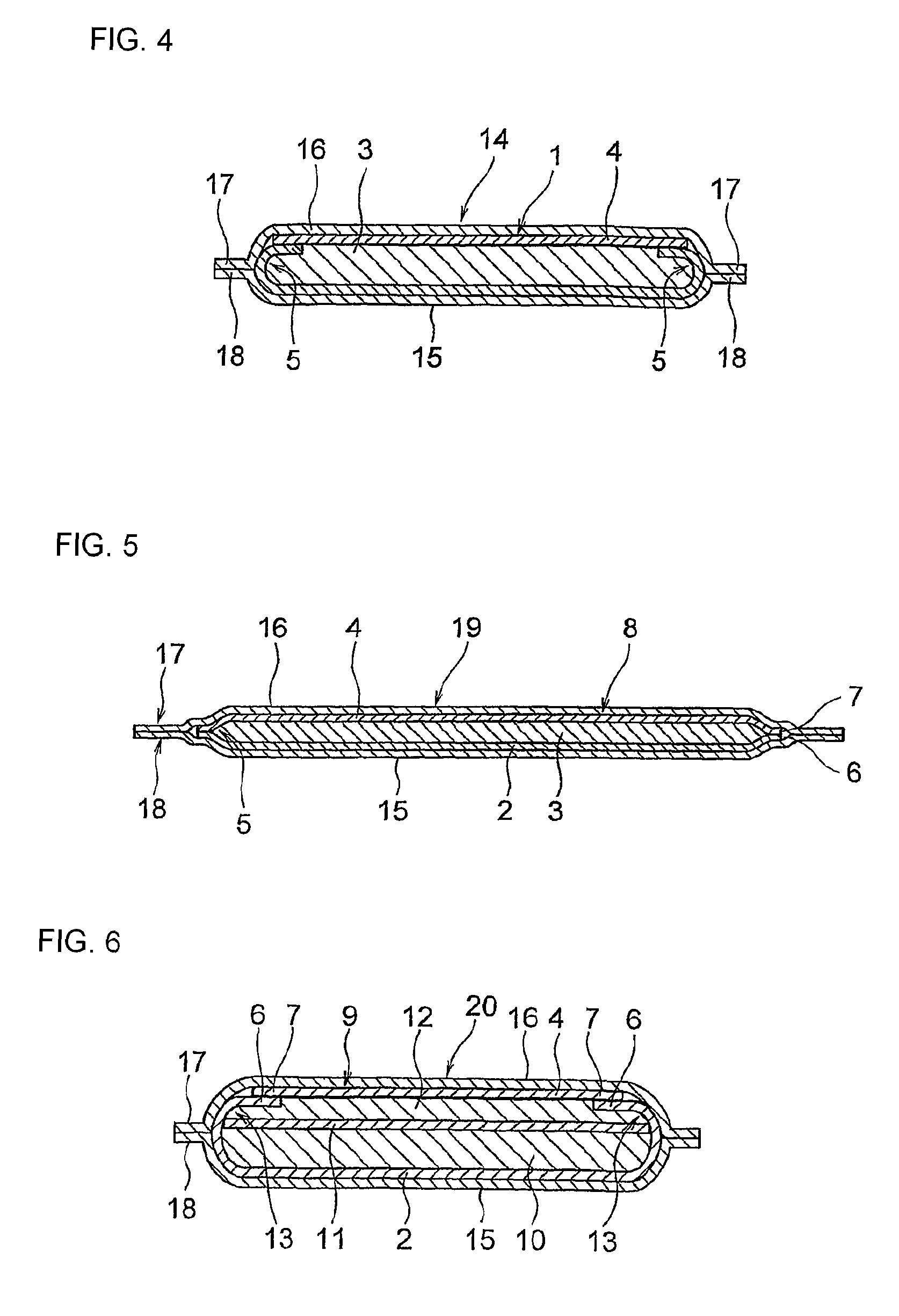Absorber comprising pulp, tea dregs and water absorbent resin; sanitary articles using the absorber and production method thereof
a technology of absorbent resin and pulp, which is applied in the direction of bandages, paper/cardboard containers, transportation and packaging, etc., can solve the problems of reducing the water-absorbing velocity and prone to proliferation of bacteria, and achieve the effect of reducing the amount of mixed tea dregs
- Summary
- Abstract
- Description
- Claims
- Application Information
AI Technical Summary
Benefits of technology
Problems solved by technology
Method used
Image
Examples
example 1
[0318]The absorber of this Example is shown in FIG. 1. The absorber (1) of this Example is formed from a lower water-absorbing paper layer portion (2), a water-absorbing mixture layer portion (3), and an upper water-absorbing paper layer portion (4). The lower surface part of the absorber (1) is formed of the lower water-absorbing paper layer portion (2), and the lower water-absorbing paper layer portion (2) is formed from one or more sheet of thin paper. In this Example, the water-absorbing material mixture containing the crushed pulp fiber material beaten to have a fiber length of 0.1 to 7 mm, the crushed tea leaves having a particle size of 0.05 to 4.6 mm, and a highly water-absorbing resin in an amount less than the crushed pulp fiber material is laid on the lower water-absorbing paper layer portion (2) to form the water-absorbing mixture layer portion (3). The marginal portion (5) of the lower water-absorbing paper layer portion (2) is folded on the marginal portion (5) of the ...
example 2
[0320]The absorber of this Example is shown in FIG. 2. Comparing with the absorber (1) of Example 1, the absorber (8) of this Example differs in that the marginal portion of the lower water-absorbing paper layer portion (2) is not folded on the marginal portion (5) of the water-absorbing mixture layer portion (3) and the inner face of the marginal portion (6) of the lower water-absorbing paper layer portion (2) and the inner face of the marginal portion (7) of the upper water-absorbing paper layer portion (4) are mated to be pressure-bonded or adhered; the others are similar as the absorber (1) of Example 1.
[0321]In the absorber (8) of this Example, the lower water-absorbing paper layer portion (2) is prepared by disposing one or more sheet of thin paper on a continuously moving net conveyer, the water-absorbing material mixture containing the crushed pulp fiber material beaten to have a fiber length of 0.1 to 7 mm, the crushed tea leaves having a particle size of 0.05 to 4.6 mm, an...
example 3
[0323]The absorber of this Example is shown in FIG. 3. In the absorber (9) of this Example, the lower surface part of the absorber (9) is formed of the lower water-absorbing paper layer portion (2) formed of one or more sheet of thin paper; the upper surface part is formed of the upper water-absorbing paper layer portion (4) formed of one or more sheet of thin paper; in this Example, the water-absorbing material mixture containing the crushed pulp fiber material beaten to have a fiber length of 0.1 to 7 mm, the crushed tea leaves having a particle size of 0.05 to 4.6 mm, and the highly water-absorbing resin in an amount less than the crushed pulp fiber material is laid on the lower water-absorbing paper layer portion (2) to form the lower water-absorbing mixture layer portion (10). An intermediate water-absorbing paper layer portion (11) formed of one or more sheet of thin paper is provided on the formed lower water-absorbing mixture layer portion (10). The water-absorbing material ...
PUM
| Property | Measurement | Unit |
|---|---|---|
| particle size | aaaaa | aaaaa |
| particle size | aaaaa | aaaaa |
| length | aaaaa | aaaaa |
Abstract
Description
Claims
Application Information
 Login to View More
Login to View More - R&D
- Intellectual Property
- Life Sciences
- Materials
- Tech Scout
- Unparalleled Data Quality
- Higher Quality Content
- 60% Fewer Hallucinations
Browse by: Latest US Patents, China's latest patents, Technical Efficacy Thesaurus, Application Domain, Technology Topic, Popular Technical Reports.
© 2025 PatSnap. All rights reserved.Legal|Privacy policy|Modern Slavery Act Transparency Statement|Sitemap|About US| Contact US: help@patsnap.com



